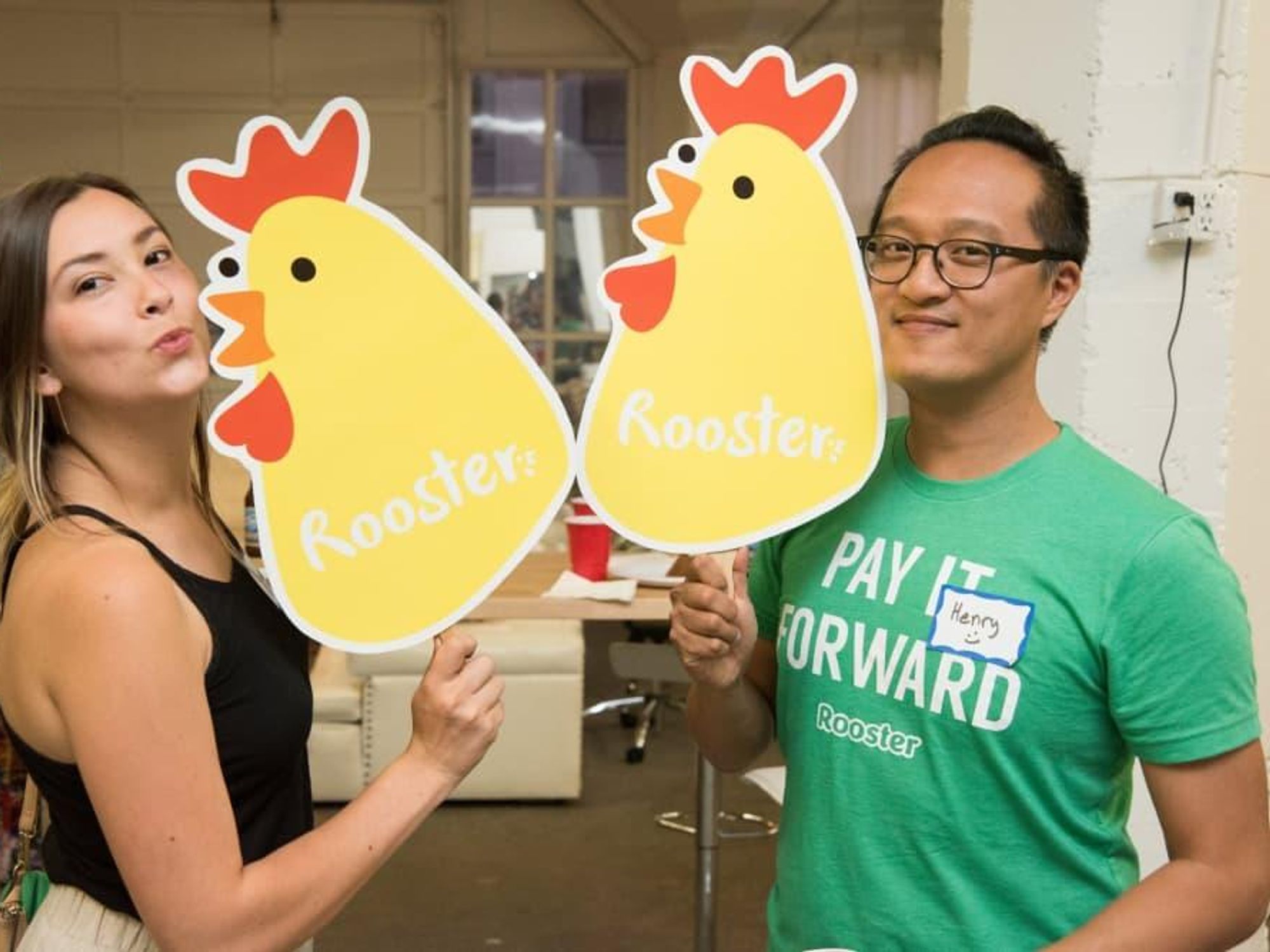Pay it Forward
Innovative platform sparks 10,000 Austinites to pay-it-forward with a new kind of movement

Tali Saar believes that kindness is contagious. Her new online pay-it-foward platform, Rooster, was launched a year ago in Portland, Oregon, with a basic belief that at our core, being good to one another is a fundamental and necessary part of being human. Now, Rooster is expanding into Austin, and with more 10,000 members already signed up, it appears that belief is shared by many in the Capital City.
Users of the Rooster platform help each other move, lend each other tools, fix things around the house, among many small and large kindnesses, and they do it all for free. The only promise they have to make is that if someone does them a solid, they have to pay it forward by helping out someone else.
“Social connection is as vital to human well-being as air and water,” says Saar. “Unfortunately, while technology has pushed humanity forward on so many fronts, it is completely eroding our social ties. I feel that personally, and I sense that sentiment echoed in almost every interaction.”
The launch of Rooster in Portland last year was an unexpected success for Saar. Since its inception, almost 50,000 people have signed up, and the results are immediately tangible. Saar gets notes all the time from Rooster users who she says report "feeling more connected, because people who used to be strangers are now there for each other.”
Saar and her husband, Gil, both Israeli immigrants to the U.S., first came up with the idea for Rooster more than three years ago after reading a book about human cultures. The couple realized that, for the majority of our existence, human beings lived in tribes, reliant on one another for almost every aspect of our daily lives. Saar grew up on a kibbutz in Israel — a closed agricultural cooperative community — and has known the comfort and natural rhythms of living in her own “tribe,” working closely with others for the betterment of the community.
“We've moved to a new city every few years,” she says of her time in the U.S., “and finding my long-lasting tribe has become harder than ever. When you're not constantly surrounded by 'your people' like I used to be, you start paying a lot more attention to how chance encounters — a minute-long chat with the barista getting your coffee, a brief exchange with a neighbor while walking your dog — have a substantial mood-lifting effect.”
A platform like Rooster, says Saar, is critical to the health of our society now more than ever. “If there's one thing that characterizes this particular moment in history in our society, it's the apparent disintegration of social and political structures that have served us for the better half of a century," she says.
“We think Rooster is important in this time, this now, because it provides a … way to help generate mutual trust within our communities, an opportunity to make promises and to uphold them, to owe and to be owed, to imbue meaning and value into our relationships, feel appreciated," she says. "[It's] precisely the kind of value … that has no price tag. We believe that in this moment, what our society needs more than anything is imagination. The possibility to imagine new social structures, new ways to create and measure value, new ways to move forward.”
When it comes to the company moving forward, however, this is a crucial moment for Rooster. While its launch in Portland and initial expansion into Austin were successful, the platform is struggling to make ends meet. The model for Rooster, however, offers a solution: a crowdfunding campaign to cover basic operating and infrastructure costs.
“We are very excited for every single person who joins,” says Saar. “To us they are saying, ‘We share your vision, we feel that same pain for our society, and we're here to fix it.’ These numbers have grown way beyond what we could have hoped. We're currently crowdfunding to help sustain the current communities and it is our dream to bring Rooster everywhere and keep growing these communities.”
